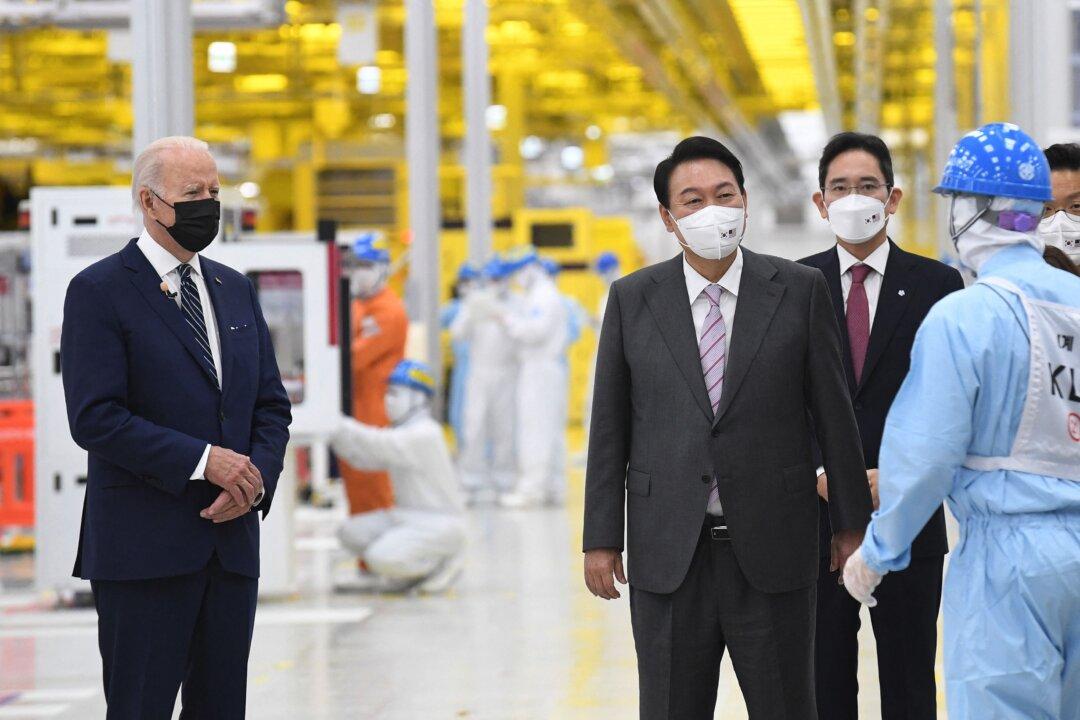Samsung Electronics Co. will spend 450 trillion won (about $360 billion) over the next several years until 2026 to boost its businesses, from semiconductor chips to pharmaceutical drugs.
The investment is expected to drive long-term growth in strategic sectors like the chip industry. Samsung expects investments in the biopharmaceutical sector will help make it as successful as its chip venture, according to Reuters. In the May 24 announcement, the company revealed that roughly 80 percent of the investments will be made in South Korea, where it is headquartered.





